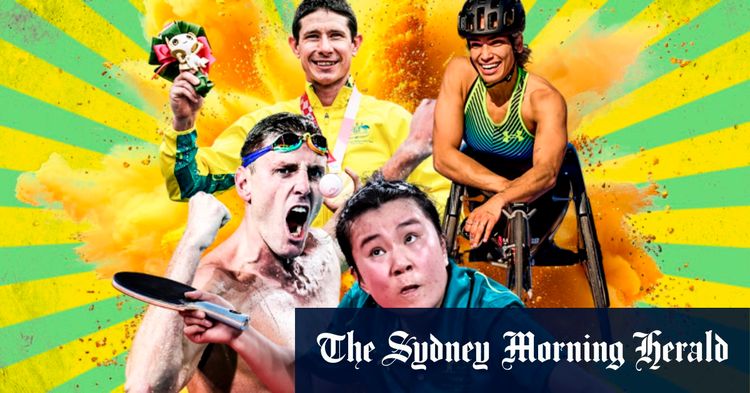Paris Games 2: Paralympics will continue to change social attitudes

Seventeen days after the dazzling closing ceremony, Paris is well and truly ready for more Olympic glory. The Paralympics’ opening ceremony this morning will start 11 days of competition and illuminate the city of light at the end of les vacances while warming an Australia teetering between winter and spring.
The Paralympic flame was lit in Stoke Mandeville, a village north-west of London considered the birthplace of the Paralympic Games, and relayed to Paris where hurdler Cyrena Samba-Mayela, the only French woman to have won a medal in athletics at the Paris Olympic Games, and six-time French Paralympian Ryadh Sallem, a member of the wheelchair rugby team, will light the cauldron in front of the Hotel de Ville.
If Australia’s record haul of 52 medals in Paris fanned a sense of national pride, the Paralympics uniquely links patriotism with a sense of social inclusion. It is a sporting event that showcases a competition that, just like the completed summer Games, permits the pursuit of excellence by athletes affected by a wide range of impairments.
To this end, para-athletes not only have the same hopes and dreams but also compete in the same spectacular Parisian stadiums and arenas, including the foot of the Eiffel Tower and the gardens of the Chateau de Versailles, that became familiar to Australian spectators and television viewers who watched the earlier competition.
The inaugural Paralympic Games in Rome in 1960 attracted 400 athletes from 23 nations competing in eight sports. Twelve represented Australia. They had to raise their own funds through raffles, street stalls and dances and balls. They won 10 medals, including two swimming golds. The Paralympics have prospered since. More than 4400 competitors will take part in the opening ceremony along the Champs-Elysees, including 160 Australians competing across 17 of the 22 Paralympic sports.
Loading
Once, they used to give away tickets to the Paralympics, until they started charging at the 1996 Atlanta Olympics. Today, more than 2 million of the 2.5 million tickets available have been snapped up, with a number of Paris events sold out.
In another sign of change, Australia’s Paralympians will receive up to $20,000 for bringing home a medal in Paris, with the federal government declaring it would match the financial reward given to our Olympians. The Albanese government announced medal incentives of $20,000 for gold, $15,000 for silver and $10,000 for bronze – the same amounts the Australian Olympic Committee gives its medal-winning athletes.
The equal-pay initiative is a welcome development. Paralympian medallists previously received federal funds at the Tokyo Games but not equal pay. Para-athletes deal with barriers to competing in elite sport that are certainly more challenging than those faced by their Olympic compatriots. Apart from disability, many face difficulties in obtaining financial support, and overcoming such obstacles is a hallmark of their exceptionalism.
For 64 years Paralympic competitors have helped redefine how society views people with disability through sporting excellence. That torch will burn brightly in Paris.
The Opinion newsletter is a weekly wrap of views that will challenge, champion and inform. Sign up here.





































